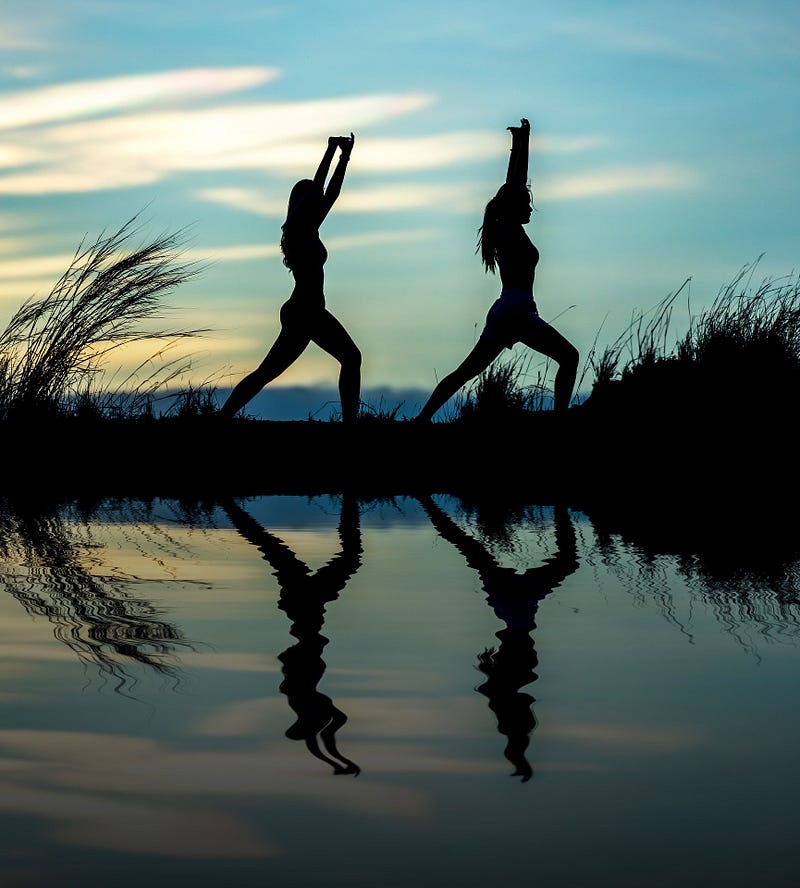Boosting Your Immune System: Essential Strategies During COVID-19
Written on
Chapter 1: The Importance of Immune Health
In light of the COVID-19 pandemic, many are experiencing heightened anxiety about their health. This anxiety often leads to frantic behaviors such as hoarding supplies like toilet paper and disinfectants. However, these measures do little to genuinely fortify your health.
While advice surrounding hand hygiene and avoiding sick individuals is certainly valid, it's crucial to explore another dimension: strengthening your immune system from within. This often-overlooked aspect is vital for true health resilience.
Achieving good health is a personal journey that requires proactive involvement. You hold the key to your well-being, and understanding how to enhance your immune system is essential. Below, you'll find a concise overview of scientifically validated strategies to bolster your immunity.
The principles behind enhancing your immune function are straightforward. They involve sensible habits that the scientific community supports. By focusing on building your health from the inside out, you will create more robust defenses against illness than simply stockpiling supplies.
Section 1.1: Regular Exercise
Engaging in regular, moderate exercise is a proven way to enhance your immune response. Unlike excessive workouts, which can be detrimental, moderate activity can effectively reduce inflammation and improve immune regulation.
Exercise helps clear pathogens from your airways and increases the circulation of antibodies and white blood cells throughout your body. Furthermore, it lowers levels of cortisol, a stress hormone that can weaken immunity. Additionally, the temporary rise in body temperature during exercise can help combat certain pathogens.

Tips:
- Aim for at least 30 minutes of moderate activity daily, such as brisk walking or cycling.
- If you prefer outdoor activities, that’s even better for your health.
Section 1.2: Nutrition and Gut Health
The quality of your diet plays a direct role in your immune health. Many typical diets, especially in the U.S., are overly processed and lack essential nutrients. Proper nutrition is critical, as it provides the necessary building blocks for your body to function optimally.
Moreover, your gut microbiome is a crucial player in immunity. It communicates with both your brain and immune system, and it can influence cortisol levels. A healthy gut microbiome is vital for a strong intestinal barrier, which acts as your first line of defense against illness.

Tips:
- Increase your daily water intake by two glasses.
- Incorporate more fruits and vegetables into your meals.
- Limit processed foods and sugary drinks, opting for homemade meals instead.
Chapter 2: Key Lifestyle Changes for Immune Support
The first video titled "Nutrition and COVID-19 - Tips to Boost Your Immune System" provides valuable insights into dietary choices that can enhance immune function.
The second video, "How important is the immune system in protecting against Covid-19?" explores the critical role that the immune system plays in safeguarding health during the pandemic.
Maintaining optimal vitamin D levels, practicing meditation, ensuring adequate sleep, and moderating alcohol consumption are also essential components of a robust immune system.
Section 2.1: Vitamin D and Immune Function
To accurately assess your vitamin D levels, a simple blood test is necessary. Low levels can significantly impair your immune response and increase susceptibility to autoimmune conditions.
Tips:
- Spend short periods in the sun regularly.
- Include vitamin D-rich foods like fish and eggs in your diet.
Section 2.2: The Role of Sleep
Adequate sleep, typically 7-8 hours a night, is vital for immune health. It aids in the production of cytokines, proteins that help combat inflammation.
Tips:
- Prioritize sleep as part of your health routine.
- Follow the recommended lifestyle changes to improve your sleep quality.
Section 2.3: Reducing Alcohol and Smoking
Limiting alcohol intake and quitting smoking can vastly improve your immune function. Both habits can disrupt your gut microbiome, reducing the effectiveness of your immune cells.
Tips:
- Reduce the number of alcoholic beverages you consume.
- Consider quitting smoking to enhance your overall health.
In conclusion, improving your health is within reach. By adopting these strategies, you'll feel more energized and less anxious. For additional support, visit my website to access my free guide, "5 Days to More Peace, More Prosperity, and More Happiness."
All images are sourced from Pixabay.com.